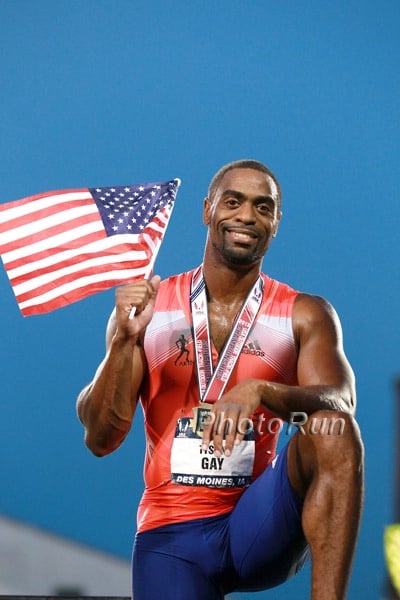Russia vs. America: The Doping Double Standard In America’s “Big Money Sports”. “In Your Face Washington”

GR Editor’s Note
Moscow was accused of doping as part of a US dirty tricks campaign to prevent Russia from participating in the 2016 Summer Olympics in Rio de Janeiro in 2016. And now, the International Olympic Committee (IOC) has suspended the Russian Olympic Committee and has banned Russia from participating in the Winter 2018 games in South Korea.
This action of the IOC is part of Russiagate: it is a politically slanted smear operation emanating from Washington.
It is a clear case of double standards.
What is the record of the U.S. with regard to doping?
The main sports organizations including the NFL, MLB, and NBA have allowed unusually relaxed policies for performance-enhancing drug testing and punishment. The USADA is the US government agency responsible for the implementation in the United States of the World Anti-Doping Code,
Yet, the record suggests in this 2014 Global Research article by Sami Aziz that the USDA does not actively intervene in “big money sports” and often turns a blind eye to American athletes using performance-enhancing drugs.
Michel Chossudovsky, December 6, 2017
* * *
There is a doping double standard in American sports. The “big money” sports – football, baseball, and basketball – turn a blind eye to their athletes using performance-enhancing drugs while track – a “poor” sport – does not. This double standard is particularly harmful to track because strict testing procedures and subsequent doping scandals have led to a general decline of faith in the sport.
Mainstream American sports have long allowed their athletes to get away with something considered immoral for the sake of their popularity. This is an inadequate justification. In the case of track, a sport Americans really only pay attention to during Olympic years, anti-doping is something that now creates almost as many headlines as the sport itself.
If for every great race there is a headline about yet another runner getting busted for doping, the sport will never see the increased public interest or ratings that it would benefit so greatly from. Meanwhile, ratings have never been as pressing an issue for America’s mainstream sports. If the public continues to ignore this disconnect, the popular will only continue to get more popular while the unpopular will continue to get less popular.
This past summer, Tyson Gay, the fastest American sprinter in history, tested positive for a banned substance. The American governing body for track and field (USATF) punished him with a two-year ban from competition and his sponsorship deals will be terminated in the next few months. The fastest American in history. Track’s version of Michael Jordan. Done. At 31, he will probably never compete again. Even if he does, it won’t be at the same level.
For the past few decades, track governing bodies have dealt with doping by punishing athletes who test positive with a two-year ban from competition for a first offense and a lifetime ban from competition for a second offense. Next year, the punishment for a first-time offense will be extended from a two-year ban to a four-year ban from competition. Either way, these punishments are disproportionately harsh when compared to, say, the NFL’s 4-game suspension (basically 30 days) for a first offense, 8-game suspension (basically 60 days) for a second offense and year suspension for a third offense. A third offense in the NFL is less than a first offense in track. To make matters even more unequal, testing procedures in the NFL are, just like their punishments, more relaxed than those in track. The NFL doesn’t even test players for human growth hormone (HGH), one of the most widely used performance-enhancing substances in sports.
The lack of transparency in the NFL is also worth noting. The players union is so protective that it doesn’t even allow the specific results of a positive test to be public, which means that players can be caught using steroids and publicly claim otherwise, with no repercussions. NFL testing and punishment procedures are so flawed that the head of the World Anti-Doping Agency (WADA), David Howman, publicly criticized them last year (2013).
Returning to Tyson Gay, his story would have ended much differently if he were a football player. In addition to being a lot richer, he’d already be back to competition. Specifically considering his positive test for steroids on May 16th, if he were competing under guidelines as relaxed as those in the NFL, he would have been amazingly allowed to return to competition in time for the August World Championships after serving a 30-day suspension for his first doping offense.
Here’s my fuss: I think that it is unfair for the NFL, MLB, and NBA to allow such relaxed policies for performance-enhancing drug testing and punishment, especially when compared to the policies in track. If these “big money” sports were to implement drug-testing policies as rigorous and transparent as those in track, the public would see a significant increase of doping scandals in them. The public would collectively realize that doping is more an industry wide problem than a problem specific to a “poor” sport.
Doping is an issue that needs to be tackled – no pun intended – from the top-down. The NFL is a $9.5 billion/year industry. MLB, $7.5 billion. NBA, $4.0 billion. Because the policies in these sports make it easy for players to get away with using performance-enhancing substances, they are responsible for funneling the most money into America’s performance enhancing substance black market! But, instead, the spotlight is constantly shined on track, a sport whose governing body in the US (USATF) has a $24 million yearly budget. That was not a typo. You read right. USATF’s entire yearly budget is less than what some individual football, baseball, and basketball players, including steroid cheats like Alex Rodriguez ($28 million in 2013).
It may seem like a fair doping crackdown would never happen because there’s so much money involved. Still, doping should be regarded as harshly for high-grossing sports as it is for such a low-grossing sport. The American sports doping double standard must go.
Sami Aziz is a student at Columbia University where he is on the cross country and track and field teams. In high school, he was an individual qualifier for NXN and ran 9:14 for 3200.
If you enjoyed this article, be sure to “like” his Facebook page, Sami’s Stream. He’s not really big into twitter quite yet but we told him journalists should be so follow him at @SamiAzizsWorld. Comments? Email him or LetsRun.com.
Works Cited
1. Ingle, Sean. “NFL Faces Battle with Wada over Transparency of Drug-Testing.” The Guardian 27 Sept. 2013, Sport: 11. The Guardian. Web. 2 Dec. 2013.
<http://www.theguardian.com/sport/2013/sep/27/nfl-wada-drugs-testing>.
2. Isidore, Chris. “Why Football Is Still a Money Machine.” CNN. Time Warner, 1 Feb. 2013. Web. 2 Dec. 2013. <http://money.cnn.com/2013/02/01/news/companies/nfl-moneysuper-bowl/>.
3. “2012 Budget.” USATF. N.p., n.d. Web. 2 Dec. 2013. <http://www.usatf.org/About/Financials/Approved-Budgets/2012.aspx>.


